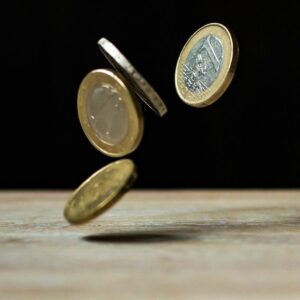an artform
an artform
As leaders, we often find ourselves in moments of self-reflection, dissecting past decisions, actions, and behaviours with the hope of improving our leadership practice. This process can be immensely powerful when done with the right mindset. However, it’s easy to fall into a negative cycle of reflection, where the lingering thoughts of “I should have done this,” “I could have done that,” or “I would have done it differently” cloud our judgment. These are important questions when approached constructively, but they can also plant seeds of self-doubt and hinder our growth if we allow them to become self-critical, rather than self-empowering.
Reflection, as a leadership competency, is an imperative. It allows us to pause, evaluate our decisions, and learn from our mistakes. When leaders take the time to assess their actions, they can identify what worked well and where they fell short. More importantly, they can recognise the underlying factors that shaped their decisions. Yet, too often, reflection becomes a breeding ground for self-criticism. Instead of using reflection as a tool for learning, we sometimes use it to dwell on missed opportunities, fixate on mistakes, or question our abilities. We start to replay situations in our minds, thinking about what we should have done, what we could have done, and what we would have done differently.
This “shoulda, coulda, woulda” mindset can be toxic. It takes us out of the present moment and keeps us tied to the past, hindering our ability to grow. In leadership, this negative reflection can result in stagnation, as we become paralysed by the fear of making the same mistakes again. The key to productive self-reflection lies in reframing these thoughts through a positive lens.
Instead of allowing the “shoulda, coulda, woulda” to erode our confidence, we can shift our focus toward growth, learning, and self-awareness. “What I should have done” becomes “What can I learn from this?” Instead of ruminating on the past, we focus on how to apply that lesson in the future. Mistakes are part of the process; they teach us to be better leaders. What’s important is not what we failed to do, but how we use that failure as a stepping stone for improvement. “What I could have done” becomes “What will I do differently next time?” Reflection should be forward-looking. Acknowledge the alternatives you didn’t choose but see them as valuable options you can explore in the future. Similarly, “What I would have done” becomes “How can I better prepare for future challenges?” Leadership is about adapting and making informed choices moving forward.
As leaders, we will inevitably face moments where we question our past decisions and actions. But rather than getting trapped in the “shoulda, coulda, woulda” loop, we must harness the power of reflection to fuel our growth. By filtering our self-reflection through a positive, forward-thinking mindset, we turn mistakes into opportunities for development and become stronger, more effective leaders. Leadership isn’t about being perfect; it’s about learning, evolving, and preparing ourselves for the future. So, the next time you find yourself reflecting, ask yourself: What can I learn, and how will I grow from here?



